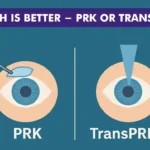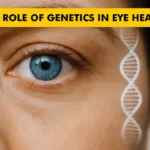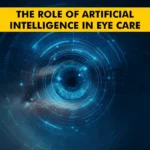This is as shocking as it gets. A joint study by researchers at Chicago, Yale and Harvard universities suggests that high particulate matter (PM) pollution causes life expectancy to fall by 3.2 years for 660 million Indians in polluted urban conglomerates, including capital Delhi. In other words, this translates into 2.1 billion life years lost to air pollution! To put it in the right perspective, just a few days ago, the particulate matter (PM) pollution in Delhi crossed 400 unit grams in cubic meter of air (ug/m3) after hovering around 250. This is, without doubt, a substantial price to pay for air pollution. There’s more on this time-bomb we are sitting on. According to the latest report on global Environment Performance Index (EPI) 2014, India has slipped 32 places to rank at a lowly 155. Health experts say air pollution is emerging as one of the biggest causes of deaths in our metros, majorly impacting the pulmonary, nervous and cardiovascular systems. How is it really harmful? Dr Vikas Maurya, senior consultant, Respiratory Medicine & Interventional Pulmonology, BLK Super Speciality Hospital, Delhi says, “Certain ultra-fine particles (UFP), particulate matter (PM) or nano particles (NP) enter the blood system through lungs and can play havoc with the nervous system by exerting its effect on nervous pathways and vessels. In fact, PM 2.5 (finer PMs) increases the risk of strokes and also deaths, especially in women.” Experts add that there are times when increased association between sulfur dioxide concentrations, carbon monoxide and ozone peak concentrations in the air has also lead to ischemic stroke among people. Air pollution’s deadly effect is not limited to your heart. It can also cause major harm to your lungs, leading to various iterations of lung dysfunction such as difficulty in breathing, cough and irritation. Adds Dr Mohd. Shuyeb, chest physician at Delhi’s Apollo Clinic: “Most people tend to gain lung allergy manifestations which leads to diseases like bronchitis and chronic obstructive pulmonary disease. People who spent most of their time outdoors are susceptible to these diseases becuase they are continuously inhaling toxic elements in the air. Extreme exposure to air pollution can also lead to malignancy cancer.” Note to mothers-to-be The dangers are even bigger for expecting mothers. Experts warn that mercury particles in the air can severely affect the unborn child’s brain and its development. A potential neurotoxin, mercury comes from coal-linked power plants, cement kilns and industry boilers. It mostly enters human body if we consume contaminated fish. Says Dr Maurya: “Pregnant women should be particularly careful as it can affect the baby’s growing brain and nervous system, impacting cognitive thinking, memory, attention, language, fine motor and visual spatial skills. These could lead to impairment of speech, hearing, walking, peripheral vision, lack of coordination of movements and muscle movements.” Even children and infants exposed to contaminated fish or any other food item can be a victim of neuro-development. Dr Jatin Chaudhary, naturopathy expert at Delhi’s Sharnam Healing Centre, says, “Wheatgrass is a healthy way to fight harmful bacteria, viruses and free radicals. It constitutes chlorophyll that neutralises toxins in the body and boosts immunity system. It can be consumed in the form of tablet or juice.” Experts suggest other ways to fight toxins in the air:
- Wear a mask when you are travelling in areas known for bad air quality.
- Get your health checked regularly to ensure there are no allergies.
- Always be mindful of the symptoms of lung problems: These could be coughing, difficulty in breathing, headaches, irritation, among other problems. Get yourself treated immediately as these are signs of high risk and require extra protection.
- Do deep breathing exercises like pranayama on a regular basis. A 20-minute walk or run early morning would help increase the lungs immunity capacity.
Keep your eyes safe Air pollution can also hurt your eyes. With increasing pollution, allergic conjunctivitis (inflammation in the eyes resulting from an allergic reaction to chemical substances in the air) is a common ailment. Dr Mahipal S Sachdev, chairman & medical director, Centre for Sight Group of Eye Hospitals, Delhi says, “The high levels of pollutants like nitric oxide, nitrogen dioxide and sulphur dioxide in the air make the tear film more acidic. Tears, which keep the eyes lubricated, are actually a mixture of water, fatty oils, proteins, electrolytes and bacteria fighting substances. Pollutants in the air cause damage to this fragile tear film, leading to redness, itching and inflammation.” Here’s how to fight it:
- Minimise your exposure to possible causative agents by keeping the windows closed, using indoor air purifier and avoiding exposure to harsh chemicals, perfumes and polluted air.
- Avoid rubbing your eyes and apply a cool compress to help reduce inflammation.
- In more troublesome cases, consult an eye doctor who’d recommend either oral antihistamines or anti-inflammatory eye drops. In severe cases, he could also prescribe steroid eye drops to get relief.
Protect your skin Pollution can create a lot of long lasting damage to your skin, varying from mild to severe side effects. One of the milder side effects is loss of moisture and elasticity caused by collagen breakdown. Says Dr Priyam Kembre, chief consultant dermatologist of Vichy Cosmetics, “Depleting ozone layer causes free radical particles to exist in the atmosphere which injures skin cells. The more the pollution, more the free radical damage to your skin. This injuring of skin cells causes premature ageing. Moreover, depleting ozone layer causes increased sun damage which in turn can cause skin burning, dark spots and pigmentation.” Major pollutants in the environment can lead to skin allergies like eczema, atopic dermatitis and erythrodermatitis, inflammations and skin cancer too! Dr Kiran Lohia, consultant dermatologist, Fortis Hospital, Delhi says, “Air pollution can worsen eczema, making skin dry, red and itchy. It can also worsen and weaken the skin’s integrity, making it prone to infections.” But your skin is not the only one to be affected. Your shiny, beautiful locks too can go for a toss. Dr Rameshwar Gutte, dermatologist, Dr. L. H. Hiranandani Hospital, Powai, Mumbai says, “Environmental pollution leads to premature falling and graying of hair and at times can lead to premature baldness.” How to keep it intact:
- Sun protection using a broad spectrum sunscreen is the most important step in skin care to prevent and lessen oxidative damage.
- Use a moisturiser with anti oxidants. These anti oxidants create a barrier between the skin and the pollutants.
- Exfoliate your skin, take lots of vitamin C and drink lots of water.
- Maintain a personal hygiene of the skin.
Article: Catch your breath: Here’s why you shouldn’t choke on polluted air
Author: Deekshita Baruah | Hindustan Times | Updated: Feb 21, 2015 05:16 IST
Publication: Hindustan Times Read more at: http://www.hindustantimes.com/wellness
*The views expressed here are solely those of the author in his private capacity and do not in any way represent the views of Centre for Sight.





